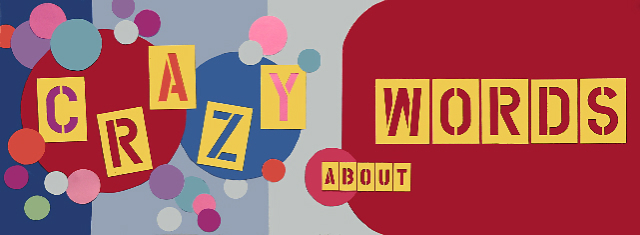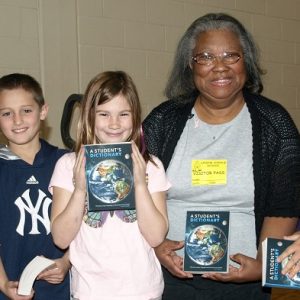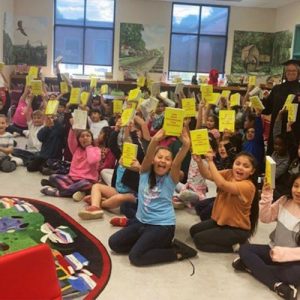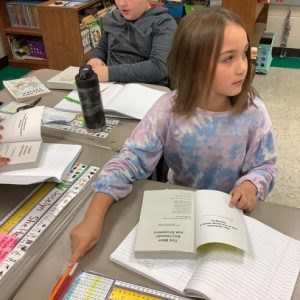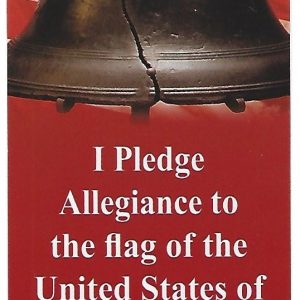Potlatch
Joe Mc Kay’s “Crazy About Words”
…toasting our language since 2003!
The potlatch tradition of giving practiced by the Kwakiutl and other Indian tribes of the Northwest includes re-gifting. In that tradition, I’d like to share several holiday gifts from friends, my attempt to redistribute the wealth of words I recently received.
First, a precious gift of The Poems of William Cullen Bryant published by THE HERITAGE PRESS in 1947, found at Bargain Books in Key West, and inscribed “Merry Christmas to Katharine, 1948, from Mother and Dad,” includes the beautiful poem of nature, “Thanatopsis.” Written when Bryant was only 17, it is a meditation on death. The title word is from the Greek thantos…death and opsis…sight. Reflective, yes, but not at all maudlin, it opens: “To him who in the love of Nature holds/Communion with her visible forms, she speaks/A various language…”
The Word Museum, The Most Remarkable English Words Ever Forgotten, by Jeffrey Kacirk, 2000, Simon and Schuster, given by a dear friend who said she found it behind a row of shelved books, “clearly destined to be yours” opens with abracadabrant…marvelous or stunning and aflunters…in a state of disorder (“her hair was all aflunters.”) Each of its 224 pages has at least one word I want to lobby dictionary editors to bring back. They don’t make words like that any more! And how about mawmsey…sleepy; stupid, as from lack of rest or over-drinking.
From an artist friend, I received The Book of Hard Words by David Bramwell, 2008, Ivy Press. This little jewel, a visual dictionary, defines, gives the etymology, and provides an example of usage for only one word per page! Each word is charmingly illustrated to provide what is called the “Read it-See it-Know it-Use it" system. Matroclinous…taking after one’s mother (from Latin mater and Greek klinein…to learn) and echopraxia…the compulsion to repeat or imitate the movements and postures of those around one (from Greek echo…repeat and praxia…action) are among the entries. This gift included a very special artist-made bookmark.
On December 26, I celebrated Kwanzaa at a service led by Rev. Randy Becker at the UU church in Key West. This Pan-African American holiday centers around a consideration of “The Seven Principles” which reaffirm the dignity of the human person in community. Each is expressed in a single Swahili word, Swahili being the most universal of the African languages. From a word perspective, it was the sixth principle, kuumba…creativity, that caught my attention. I wondered if it might be related to "Kumbaya," the Joan Baez/ Peter, Paul and Mary folk song title we’ve all sung since the ‘60s on we-are-one-in-spirit occasions. But, no, kumbaya… “come by here,” I learned, is from Gullah, a creole pidgin dialect spoken by former slaves in the Sea Islands of South Carolina and Georgia. Originally an African-American spiritual title, it dates to the 1920s.
Sometime back, a friend e-mailed suggesting I write a column on onomatopoeia, and offered borborygmus…the sound of intestinal rumbling. I’m sorry I forgot to include it last month…it’s a terrific example dating back to the Greeks and supports the theory that onomatopoeic or imitative words may have been the first uttered. This word lay in waiting for more than two millennia before getting a second job in plumbing. “All the toilets and waterpipes in the house had been suddenly seized with borborygmic convulsions,” wrote Nabokov in 1969 in Ada.
Old Possum’s Book of Practical Cats is a wonderful gift from a loving friend. T.S. Eliot’s book of poetry was the basis of “CATS,” the second longest running musical in Broadway history. In the last stanza of “The Naming of Cats” I jumped with delight on a word I didn’t know: “When you notice a cat in profound meditation,/The reason, I tell you, is always the same:/His mind is engaged in a rapt contemplation/Of the thought, of the thought, of the thought of his name:/His ineffable effable/Effanineffable/Deep and inscrutable singular Name.”
Down the rabbit hole I went trying to find its meaning, or to discern the poet’s creativity with words… (did I see the word ‘feline’ embedded anagrammatically in effanineffable?) Finally, the Urban Dictionary clued me in: non-screwable; used by asexuals to describe themselves!! It seems that ‘effa’ means ‘the eff word’ used more in days when people were less reluctant to cuss. Eliot used it as a prefix to emphasize the word ineffable! Because it’s as unique as they are, asexuals adopted it in a sense that suited. The UD had another word that employs the same construction, effanepic…descriptive of anything with a high degree of epic qualities.
I’m tempted to wish you an effanepic New Year full of great memories in the making!
Joe Mc Kay
January 2012
Please feel free to share this column with friends. Comments & questions are always welcome by e-mail to: crazyaboutwords@gmail.com

